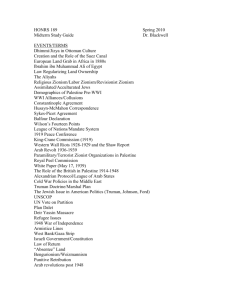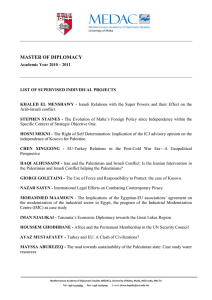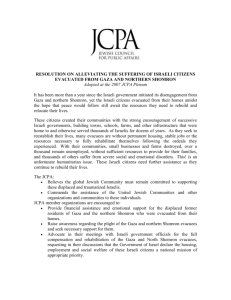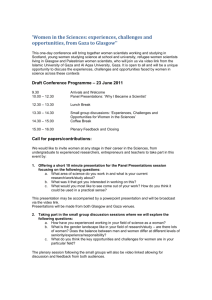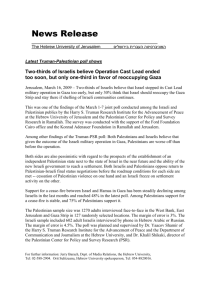Activity 9. General Moshe Dayan Eulogy for Roy Rotenberg (1956) Source: Background:
advertisement
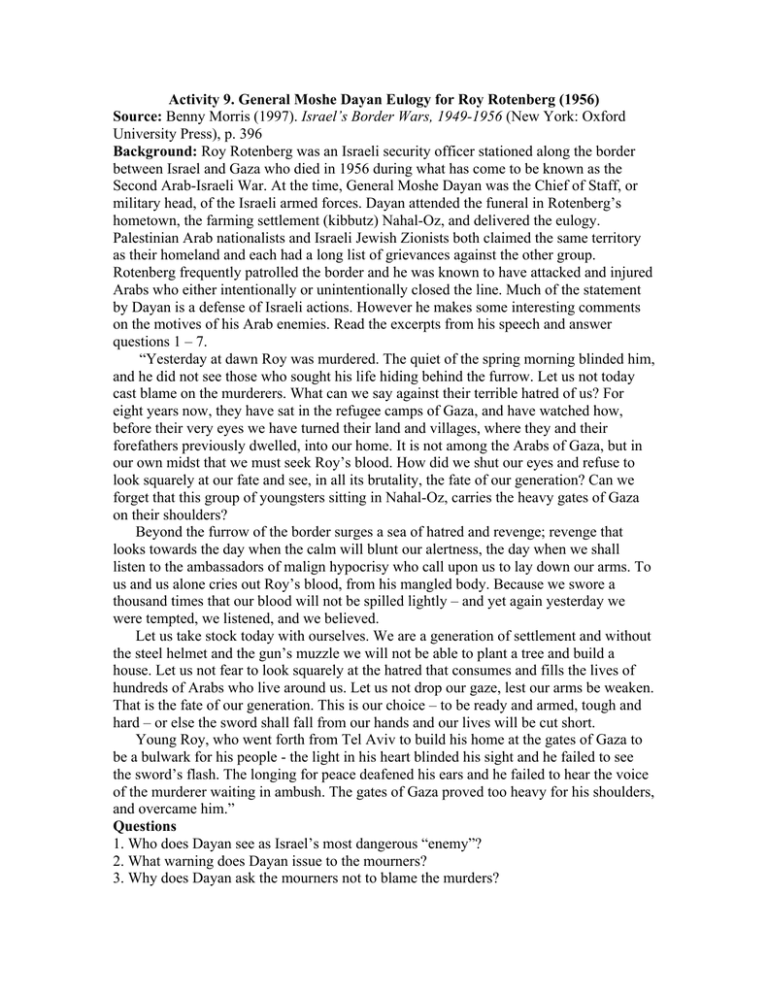
Activity 9. General Moshe Dayan Eulogy for Roy Rotenberg (1956) Source: Benny Morris (1997). Israel’s Border Wars, 1949-1956 (New York: Oxford University Press), p. 396 Background: Roy Rotenberg was an Israeli security officer stationed along the border between Israel and Gaza who died in 1956 during what has come to be known as the Second Arab-Israeli War. At the time, General Moshe Dayan was the Chief of Staff, or military head, of the Israeli armed forces. Dayan attended the funeral in Rotenberg’s hometown, the farming settlement (kibbutz) Nahal-Oz, and delivered the eulogy. Palestinian Arab nationalists and Israeli Jewish Zionists both claimed the same territory as their homeland and each had a long list of grievances against the other group. Rotenberg frequently patrolled the border and he was known to have attacked and injured Arabs who either intentionally or unintentionally closed the line. Much of the statement by Dayan is a defense of Israeli actions. However he makes some interesting comments on the motives of his Arab enemies. Read the excerpts from his speech and answer questions 1 – 7. “Yesterday at dawn Roy was murdered. The quiet of the spring morning blinded him, and he did not see those who sought his life hiding behind the furrow. Let us not today cast blame on the murderers. What can we say against their terrible hatred of us? For eight years now, they have sat in the refugee camps of Gaza, and have watched how, before their very eyes we have turned their land and villages, where they and their forefathers previously dwelled, into our home. It is not among the Arabs of Gaza, but in our own midst that we must seek Roy’s blood. How did we shut our eyes and refuse to look squarely at our fate and see, in all its brutality, the fate of our generation? Can we forget that this group of youngsters sitting in Nahal-Oz, carries the heavy gates of Gaza on their shoulders? Beyond the furrow of the border surges a sea of hatred and revenge; revenge that looks towards the day when the calm will blunt our alertness, the day when we shall listen to the ambassadors of malign hypocrisy who call upon us to lay down our arms. To us and us alone cries out Roy’s blood, from his mangled body. Because we swore a thousand times that our blood will not be spilled lightly – and yet again yesterday we were tempted, we listened, and we believed. Let us take stock today with ourselves. We are a generation of settlement and without the steel helmet and the gun’s muzzle we will not be able to plant a tree and build a house. Let us not fear to look squarely at the hatred that consumes and fills the lives of hundreds of Arabs who live around us. Let us not drop our gaze, lest our arms be weaken. That is the fate of our generation. This is our choice – to be ready and armed, tough and hard – or else the sword shall fall from our hands and our lives will be cut short. Young Roy, who went forth from Tel Aviv to build his home at the gates of Gaza to be a bulwark for his people - the light in his heart blinded his sight and he failed to see the sword’s flash. The longing for peace deafened his ears and he failed to hear the voice of the murderer waiting in ambush. The gates of Gaza proved too heavy for his shoulders, and overcame him.” Questions 1. Who does Dayan see as Israel’s most dangerous “enemy”? 2. What warning does Dayan issue to the mourners? 3. Why does Dayan ask the mourners not to blame the murders? 4. The Palestinian Arabs and Israeli Jews have many grievances against each other. In your opinion, is it useful to assess blame in a conflict such as this one? Explain. 5. How would you respond to an Arab spokesperson that argues that the Israelis are Europeans displaced by World War II who are occupying Arab lands? 6. How would you respond to an Israeli spokesperson that claims Jews have a historic right to this land because they lived here in biblical times? 7. In your opinion, can such a seemly intractable conflict as the clash between the Palestinian Arabs and the Israelis be resolved? Explain.
